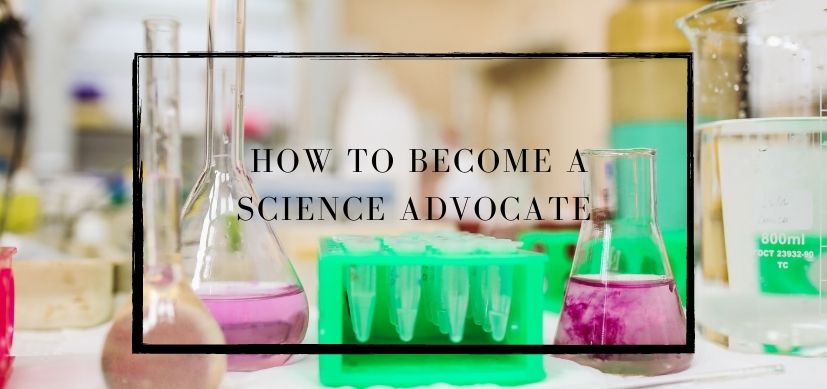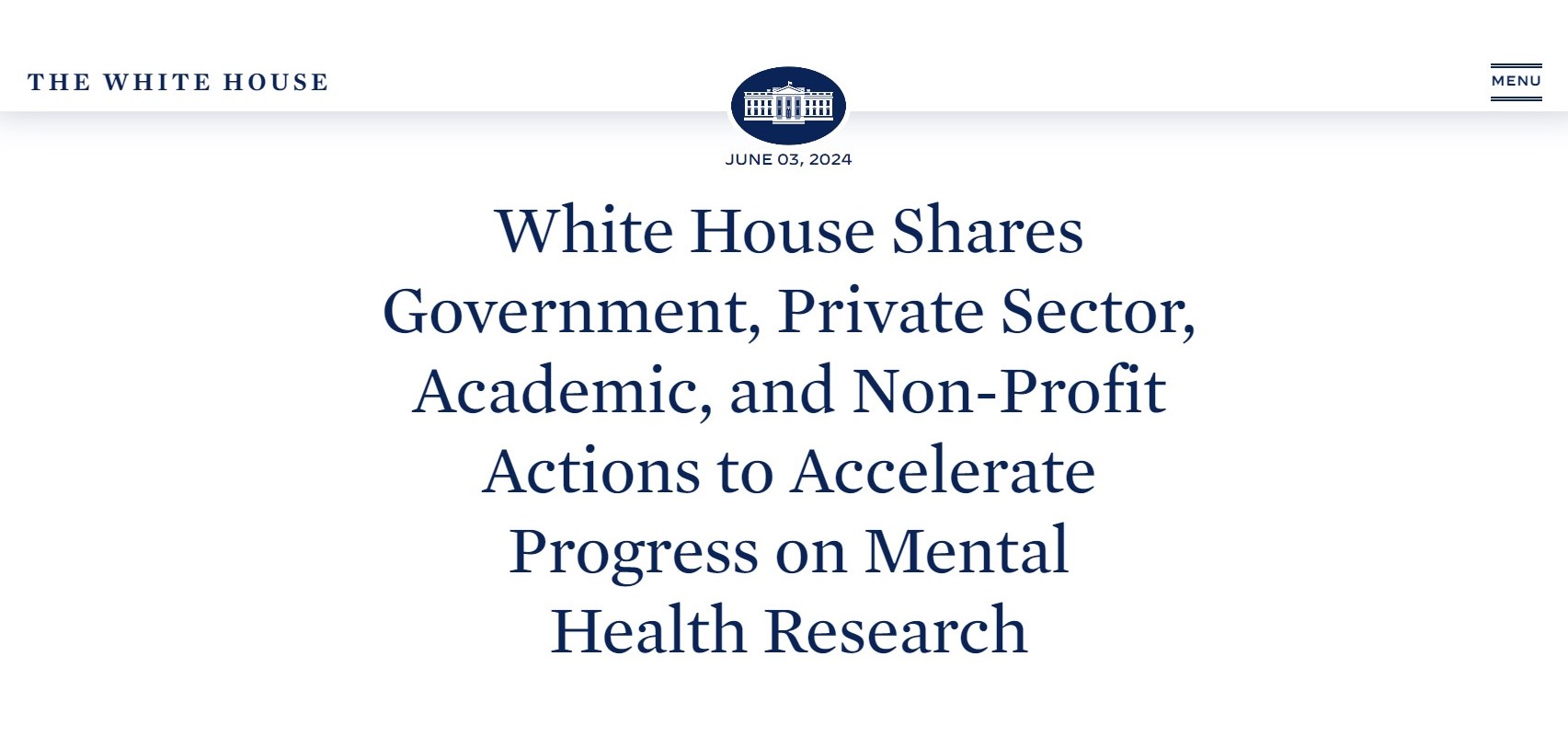How Can You Become an Effective Advocate for Research?
Post Date: February 2, 2021 | Publish Date:

Editor’s Note: Christin Godale, a PhD candidate working in the Danzer Lab at Cincinnati Children’s, was recently honored by the Society for Neuroscience as a winner in its 50th Anniversary NeuroAdvocate Challenge. Godale is a member of UC’s Neuroscience Graduate Program and serves as a Graduate Student Trustee on UC’s Board of Trustees. We invited her to share some of her advocacy experiences.

The landscape of our scientific enterprise is actively changing. The days of researchers working in isolation and solely communicating through peer-reviewed papers read by small scientific communities have come to an end. To support research funding, elected officials and the public must understand and appreciate the necessity of biomedical research, which contributes to our nation’s health and welfare and the economic vitality of our communities. The science community cannot stay on the sidelines when the stakes are this high.
Outside of my lab work, I have spent the past couple of years learning about biomedical research advocacy as an early-career scientist. As scientists, we are uniquely positioned to help raise awareness about connections between science and policy, and use our knowledge to make a difference.
Start Your Science Advocacy Journey by Joining a Professional Society
Starting a science advocacy journey may seem like a daunting task, especially for scientists that are early in their careers. Being in a lab does not leave much time to pursue advocacy efforts. Also, most scientists lack formal training on how to engage with the public or how to communicate science
Many professional societies are geared toward scientists to begin advocacy journeys. As a neuroscientist, I began my advocacy journey with the Society for Neuroscience (SfN) and the American Association for the Advancement of Science (AAAS). These organizations provided me with opportunities to engage with decision-makers and inform me about policy decisions on local, state, and national levels.
SfN and AAAS educated me about the role of science in policymaking and empowered me with the tools I needed to be a voice for science research funding. Last year, I participated in the SfN NeuroAdvocate Challenge, which consisted of connecting with policymakers and the public locally and nationally. This challenge provided an outlet for neuroscience advocates of all experience levels and locations to come together and show their dedication to the field. Activities from this challenge included contacting policymakers during the FY 2021 appropriations process, which ultimately included an increase in biomedical research funding.
In addition to advocating for biomedical science research funding, I co-founded a student-run science policy group with my fellow neuroscience doctoral candidate, Jennifer Patritti-Cram, called the Science Policy Ambassadors (SPA). Our group, affiliated with the UC Center for Public Engagement with Science, is the first registered student organization at UC that educates undergraduate and graduate students on science policy.
SPA’s mission is to explore how scientists can better communicate with policymakers at local, state, and federal levels. UC students learn about science policy issues, advocate for science and evidence-based policies, and gain science-policy related education and professional development. Some notable speakers that SPA hosted last year included Ryan Makinson, PhD, Graduate Student Trustee and Department of Defense Program Manager at the Defense Technical Information Center; Nicolas Miles, Society for Neuroscience’s Advocacy and Training Associate; Matt Hourihan, Director of the American Association for the Advancement of Science (AAAS) Research and Budget Policy Program; and Frances Colón, PhD, a science diplomat and environmental policy expert who was recently appointed to President Biden’s transition team.
Other experiences that I was involved with include:
- Participating in the Rally for Medical Research Virtual Hill Day.
- Telling legislators about the importance of animal models in research.
- Requesting policymakers to join important science-related caucuses.
- Publishing an op-ed in the Cincinnati Enquirer about the importance of science communication.
By joining these types of professional societies, you can gain access to many kinds of “Advocacy Toolkits” to develop the skillsets you need to pursue these types of activities.
Understand and Communicate the Importance of Your Research
We should not expect the public or policymakers to understand the importance of our research and why it is worthy of receiving funding. Instead, it helps if you think about your research in terms of accepted societal values.
For example, focus your message on how research can generate new therapies and cures, and spur job creation through innovation. It is also essential to share your personal story. Explain who you are, what you do, where you work, and if you live in their district.
You should be able to explain your connection to science and current work while avoiding complicated jargon and technical terms. Explain why you choose biomedical research. Elaborate on your hopes and concerns for the future of research funding. If you run a lab, elaborate on what you will do with adequate research funding and what will be lost if that funding is halted. Legislators often remember personal stories because it puts a “face” on an issue.
Identify Your Congressional Legislators
It is your policymaker’s job to listen to their constituents (you!). In the House, Rep. Brad Wenstrup (District 2) and Rep. Steve Chabot (District 1) represent the region of Cincinnati. On the Senate side, Sens. Sherrod Brown and Rob Portman represent the State of Ohio. Make sure that you bookmark their websites, follow their voting records, and let them know your opinion when legislation related to science is up for debate. As I stated earlier, professional societies, like SfN and AAAS, provide many resources to help you with this process.
Meet with Your Legislators
Building relationships with policymakers is the best way to secure robust funding for biomedical research and favorable research policies. As a constituent, you can seek meetings with your representative to hear your comments or concerns on an issue.
For example, I am part of the Ohio Science Policy Consortium, a group of doctoral students interested in establishing a Science & Technology Policy Fellowship in Ohio. For this idea to become a reality, we have to meet with legislators to get their support.
As you pursue a visit, remember that your policymakers’ schedules are usually hectic. Your meeting will be short, so your message must be focused and well-rehearsed, just like an elevator speech.
In addition to meetings, you can communicate your message by writing letters to legislators, submitting an opinion editorial, attending a town hall or a “virtual” Hill Day, and by using your personal social media platforms.
Whichever methods you choose to employ, supporting biomedical research to the wide communities outside our labs is an important part of being a scientist, and can be a rewarding personal experience. If you have a keen interest in learning more about becoming a science advocate, please feel free to reach out to me.
Christin M. Godale
Ph.D. Candidate, Neuroscience Graduate Program
College of Medicine, University of Cincinnati
Email: godalecm@mail.uc.edu
LinkedIn: https://www.linkedin.com/in/christingodale/
Twitter: @christingodale





